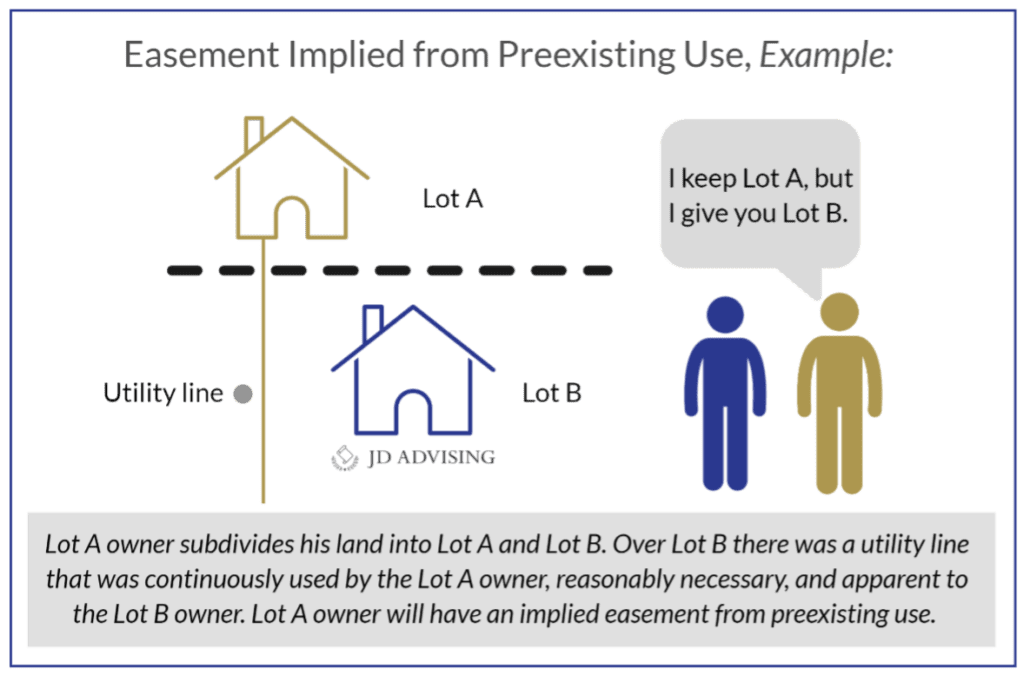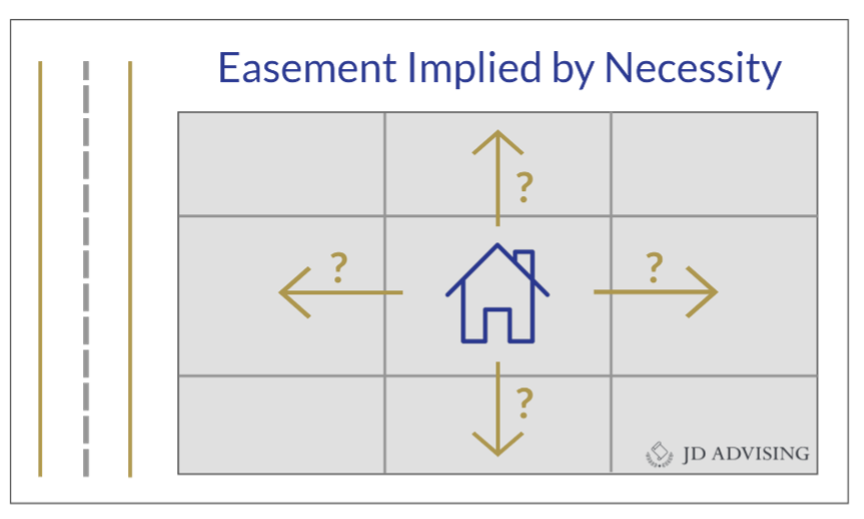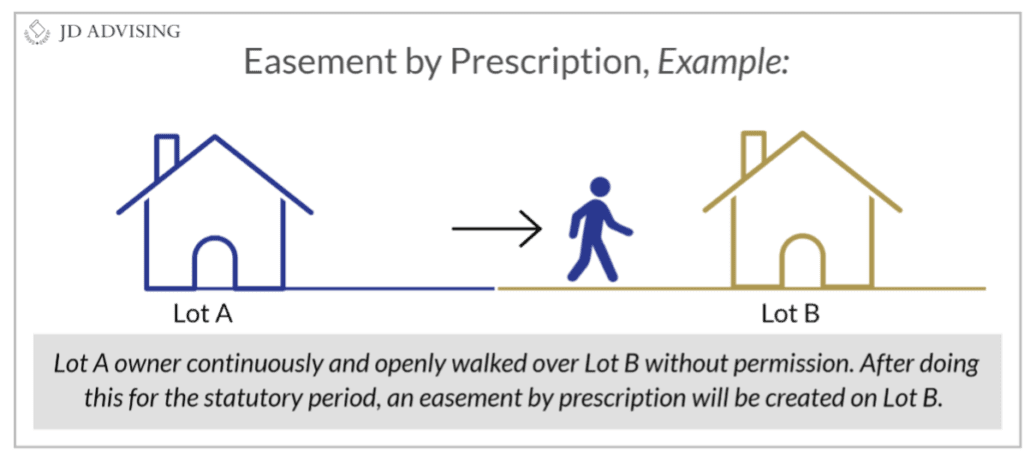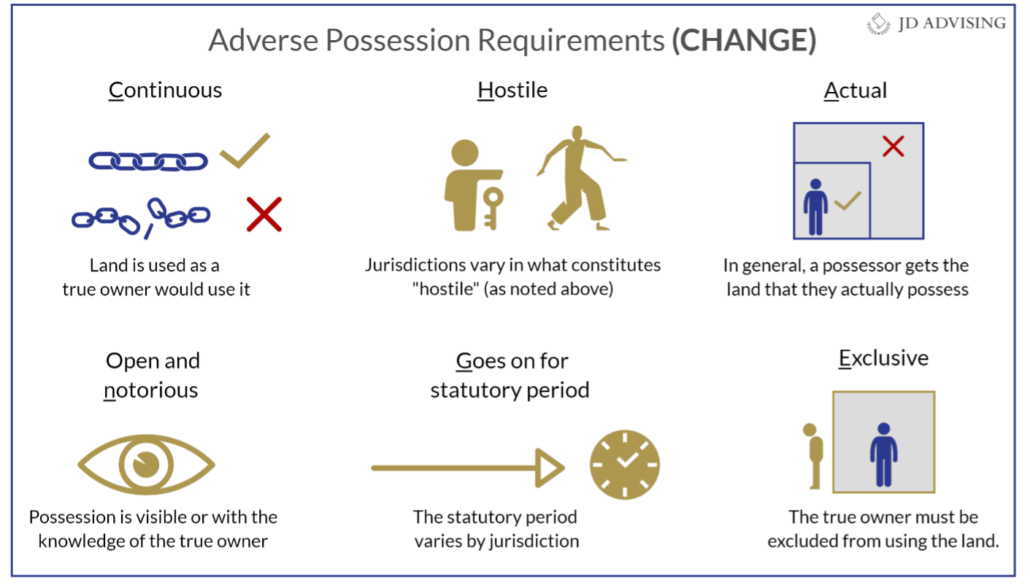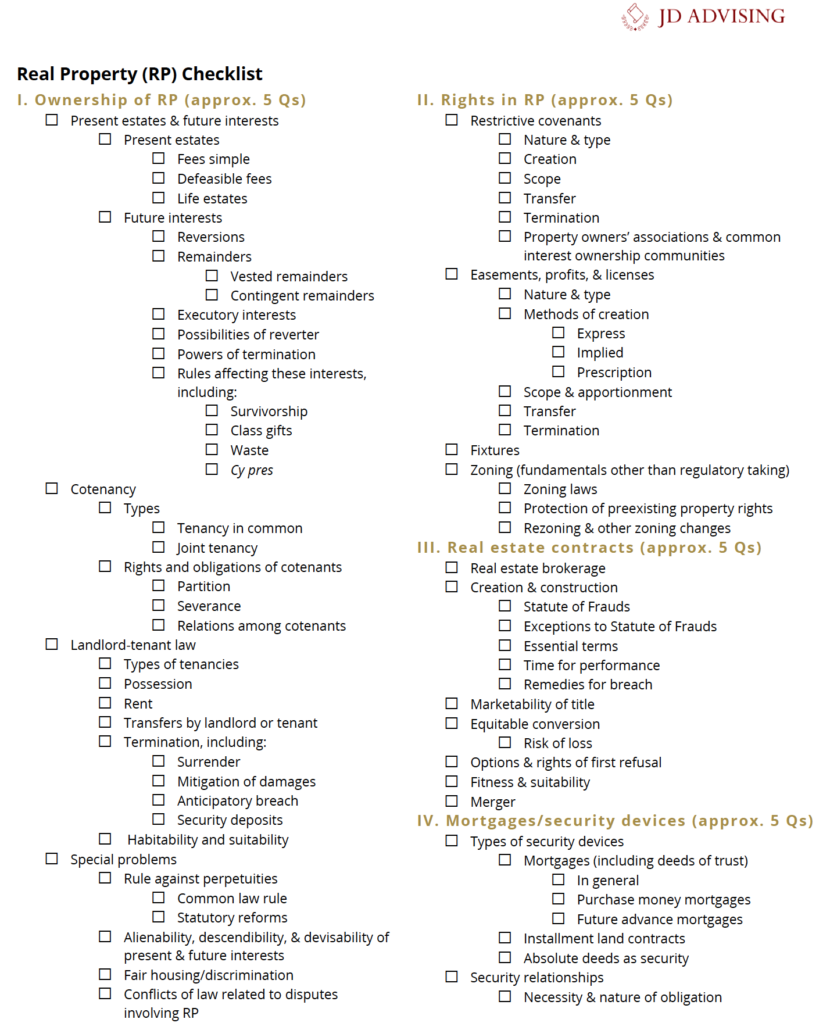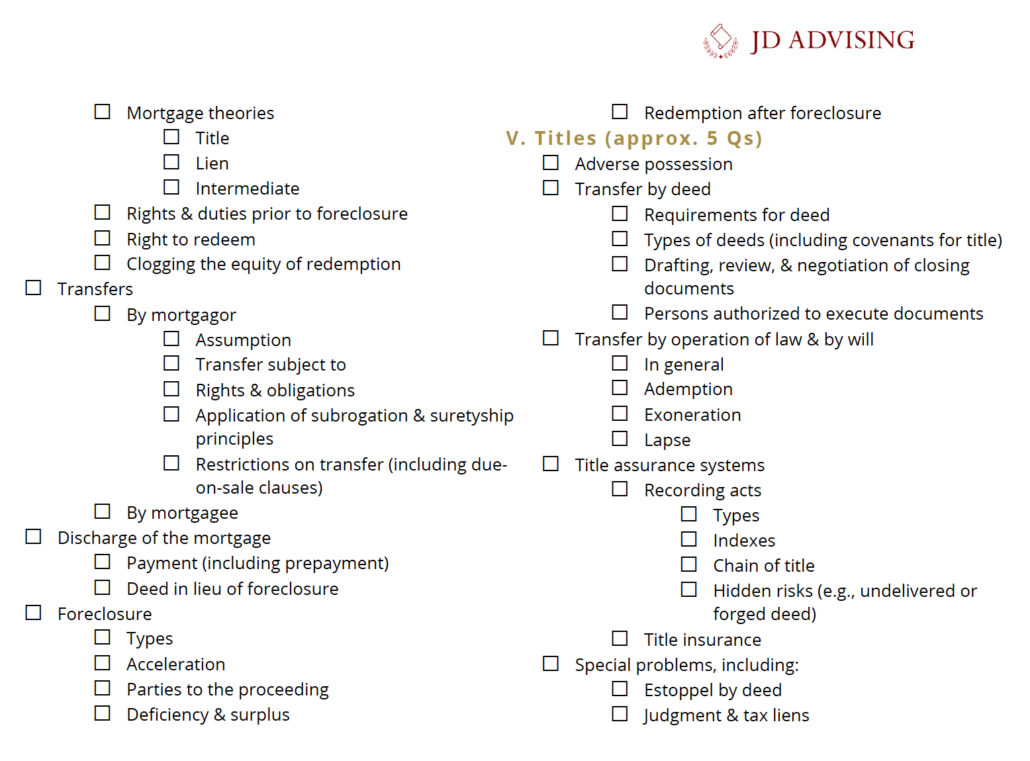Real Property—Highly Tested MBE Topics, Charts, and a Checklist!
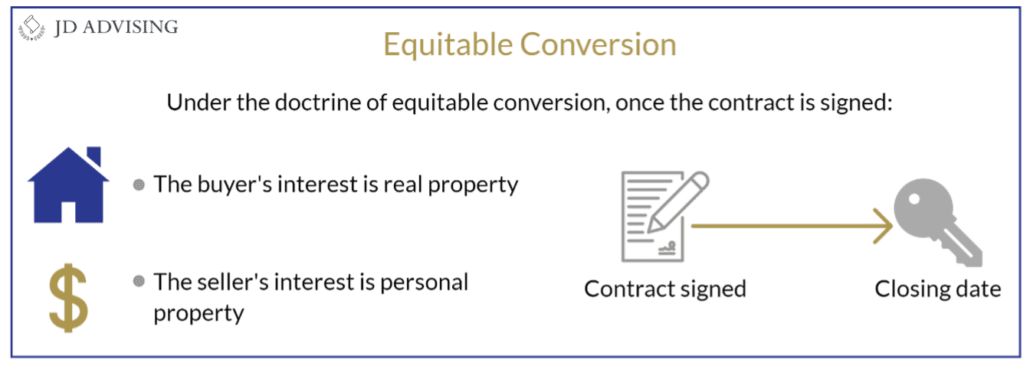

- Fee simple absolute: Example: “To A” or “To A and her heirs.” A has the estate forever.
- Life estate: Example: “To A for life.” A life estate can be express or implied.
- Life tenants have to pay taxes, interest on the mortgage, and make repairs if they are using or making a profit off the land. They are only liable up to the amount of the benefit they are getting.
- Life tenants cannot commit waste—permissive or affirmative.
- Fee simple determinable: (FSD) Durational. Measured by time.
- Magic words of creation: mnemonic = FUWD (for so long as, until, while, during)
- This estate ends automatically upon happening of the condition.
- Example: “To A for so long as A is in college.” A has a FSD. O has a possibility of reverter.
- Fee simple subject to condition subsequent (FSSCS): Conditional. Measured by occurrence of an event.
- Magic words of creation: “right of entry” must be reserved for the owner. (Usually you will see “conditional” words too like “but, if, upon condition . . . .”)
- This estate ends when O enters.
- Example: “To A, but if A smokes, O reserves a right of entry.” A has a FSSCS. O has a right of entry.
- Fee simple subject to executory interest (FSSEI)
- You will see durational or conditional language, but it will go to person B instead of O.
- Example: “To A, but if A smokes, to B.” A has a FSSEI and B has the executory interest.
5. Future Interests
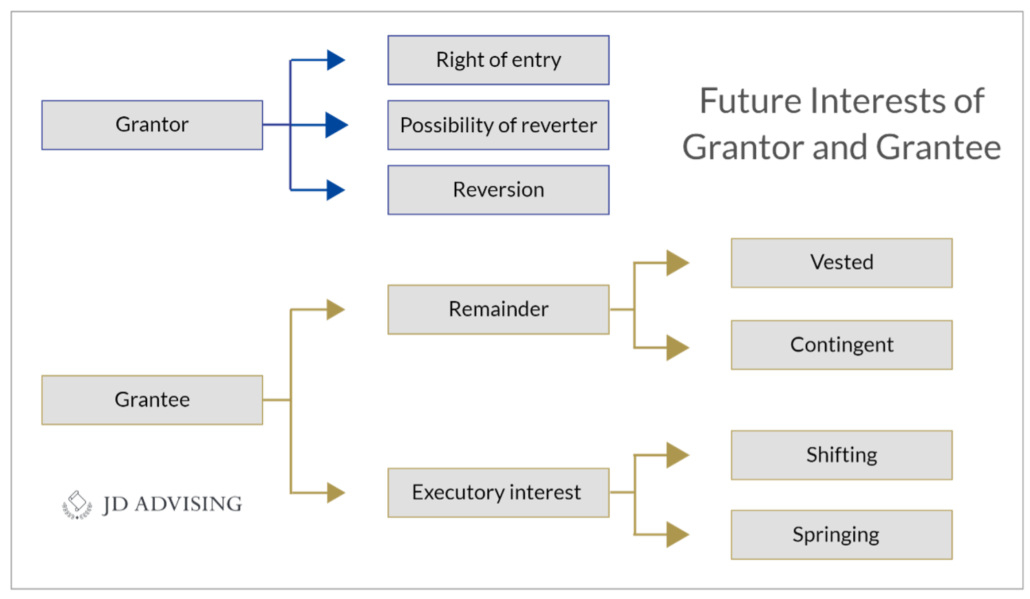
Future interests held by grantor:
- Right of entry: Goes with fee simple subject to condition subsequent only. Must be expressly reserved.
- Possibility of reverter: goes with a fee simple determinable only. (FSD + POR = <3)
- Reversion: goes with a life estate or any other time the grantor gives less than what he has.
Future interests held by grantee:
- Remainder: usually follows a life estate.
- A remainder is vested when the person is ascertained and it is certain to become possessory.
- It is contingent when the person is (mnemonic = UUU) unborn, unascertained, or if it uncertain to vest due to a condition.

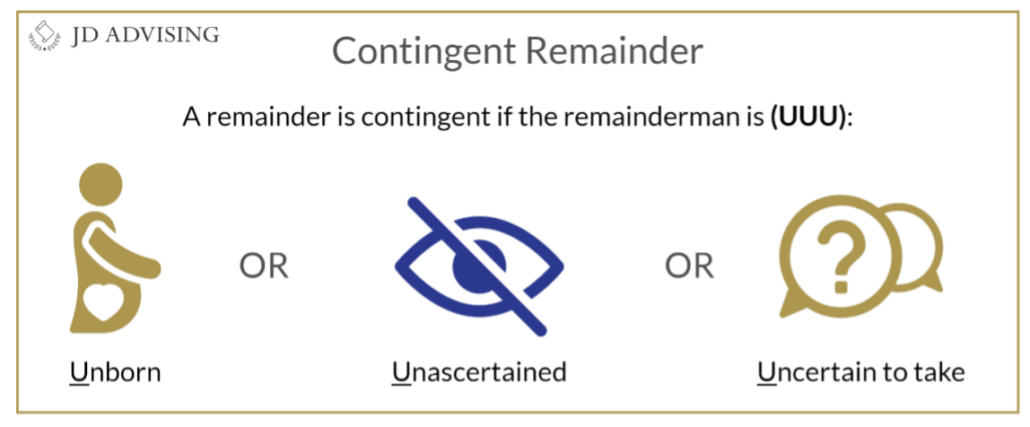
- Executory interest: when B does not have a remainder, he probably has an executory interest!
- Shifting: When B takes it from the grantee or a third party. These are the most common.
- Springing: when B divests O of his interest.
6. Concurrent Estates

- How to unilaterally sever it: (mnemonic = GSAM) give it away, sign a contract of sale, actual judicial sale by a creditor, granting a mortgage in a title theory state.
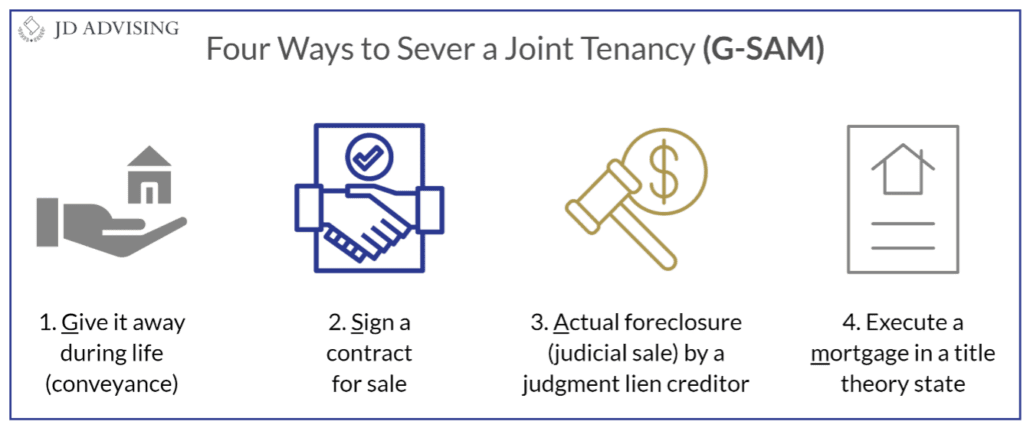
- One cannot give it away by will!
- Tenancy in common
- Creation: possession only is needed.
- What is special about it: It is devisable and inheritable, meaning that one can convey a tenancy in common via will or inheritance. There is no right of survivorship.

- Tenancy by the entirety is similar to joint tenancy except one can only sever it by death, divorce, mutualagreement, or a mutualcreditor of both executing on his interest.
7. Landlord and Tenant
- Types of holdings: term for years, at will, holdover tenancies, or periodic tenancies.
- The tenant must pay rent and not commit waste.
- There is an implied warranty of habitability for residential property where the landlord warrants to keep property in habitable condition.
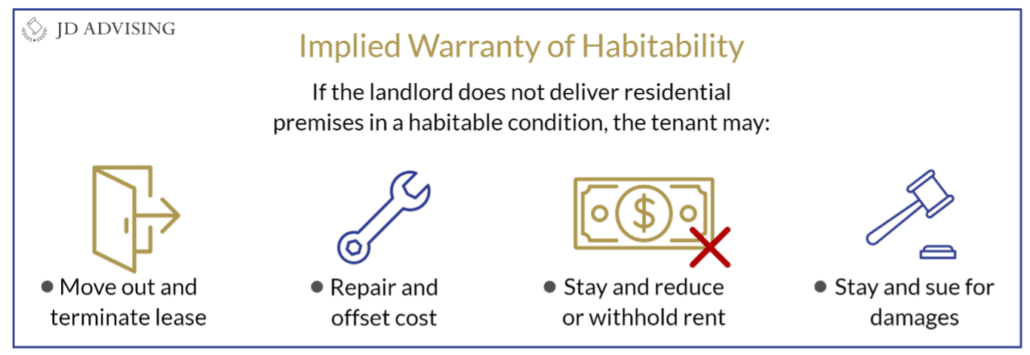
- A landlord can constructively evict a tenant if there is something that renders the premises unusable, the landlord fails to act after being notified, and the tenant leaves.

- Assignment vs. subletting
- Assignment: When tenant (assignor) assigns all of his interest to the new assignee. The initial tenant is liable under privity of contract. The new tenant is liable under privity of estate.
- Sublease: When the tenant (sublessor) rents his land to the sublessee but has some interest left over. The initial tenant is liable under privity of contract and estate. The sublessee is not liable.
8. Rights in Land—Covenants, Easements, Licenses
- Real covenants: When you want money damages, you sue for this. You need PINT:
- Privity: For the burden to run, you need horizontal and vertical privity. For the benefit to run, you only need vertical privity.
- Intent for the covenant to run.
- Notice
- Touch and concern

- Equitableservitudes: When you want an injunction, sue for this. You need everything above except privity.

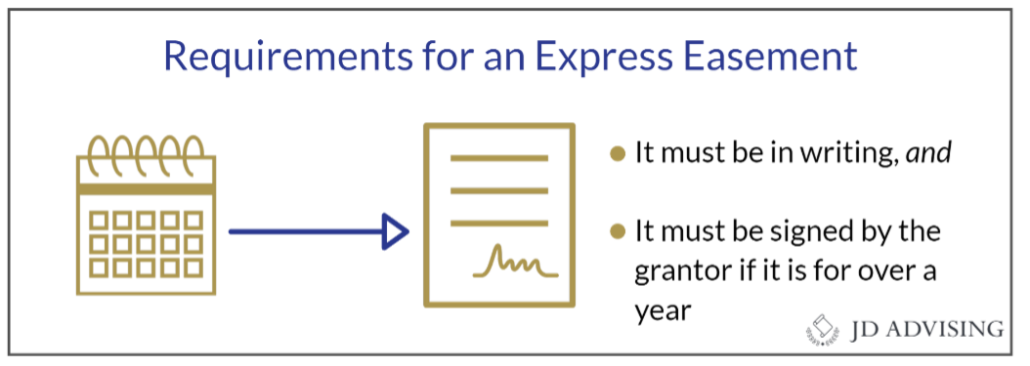
- Implied by preexistinguse : common apparent use by a landowner who subdivided land.
